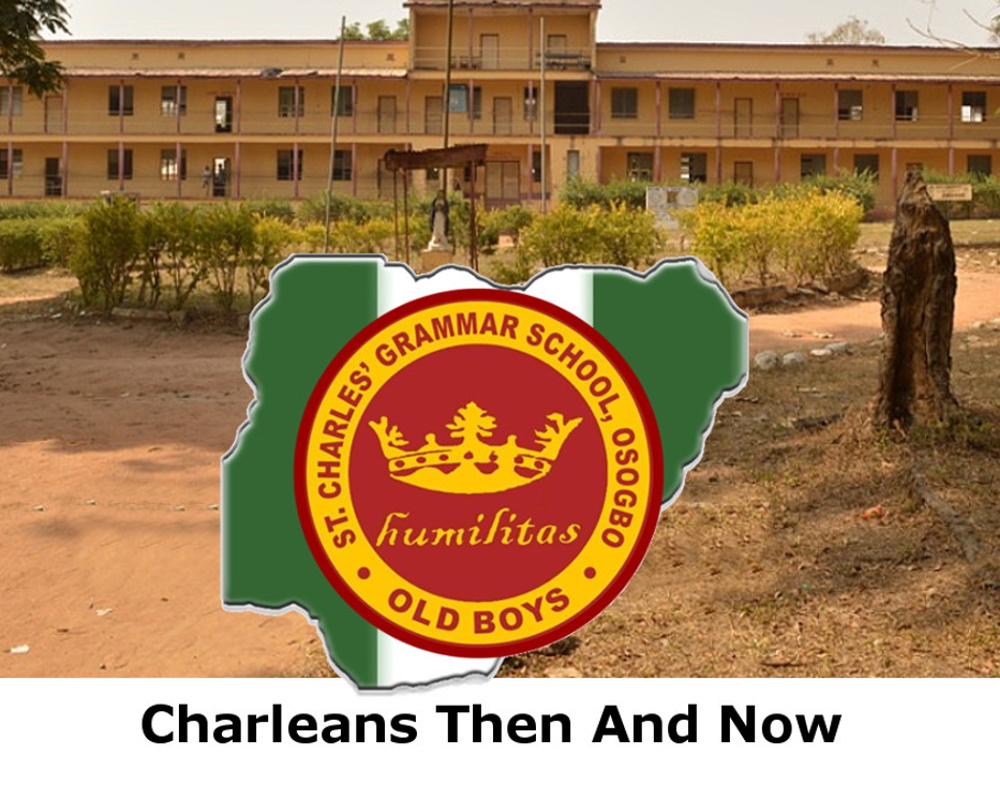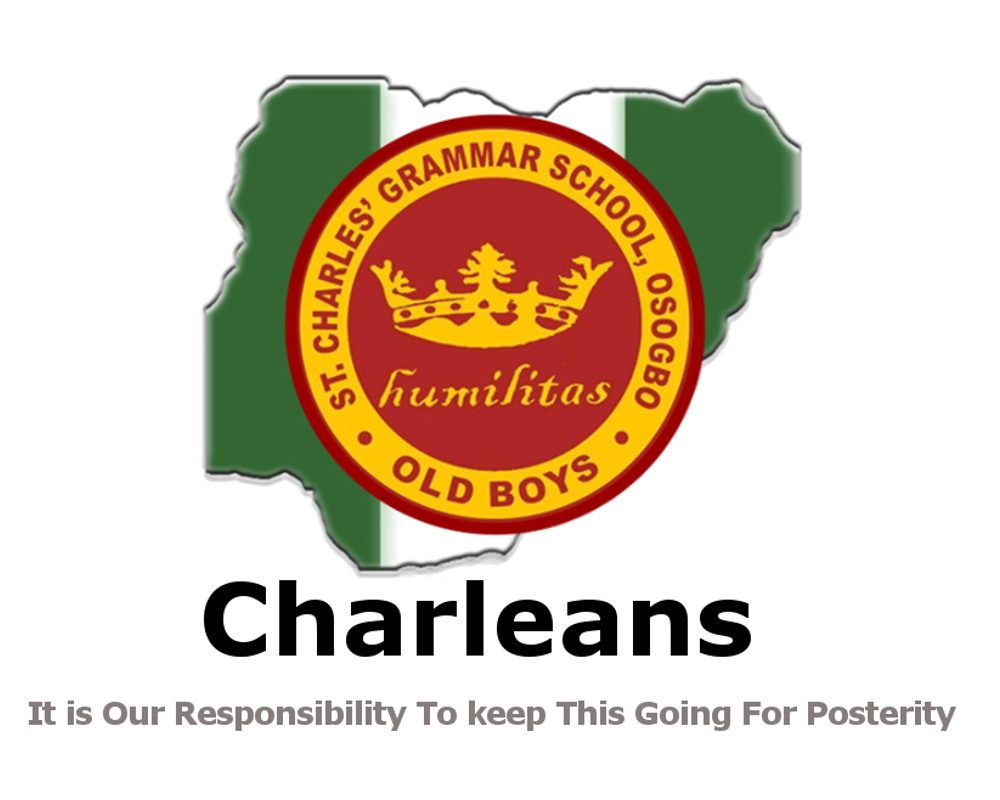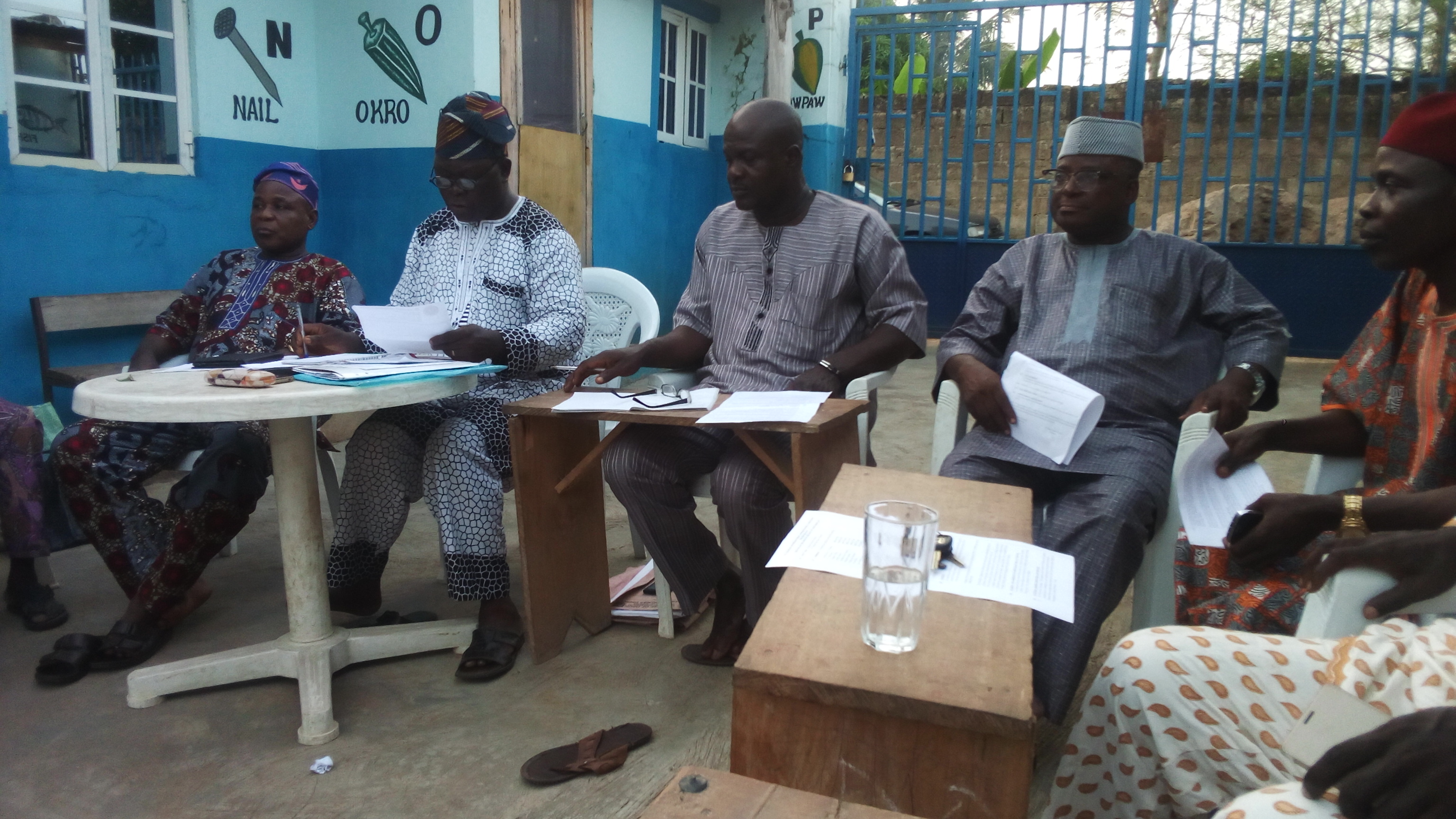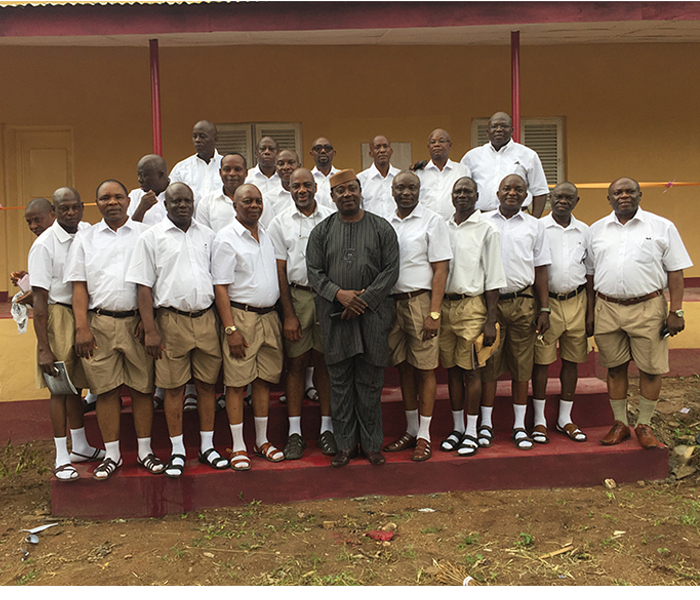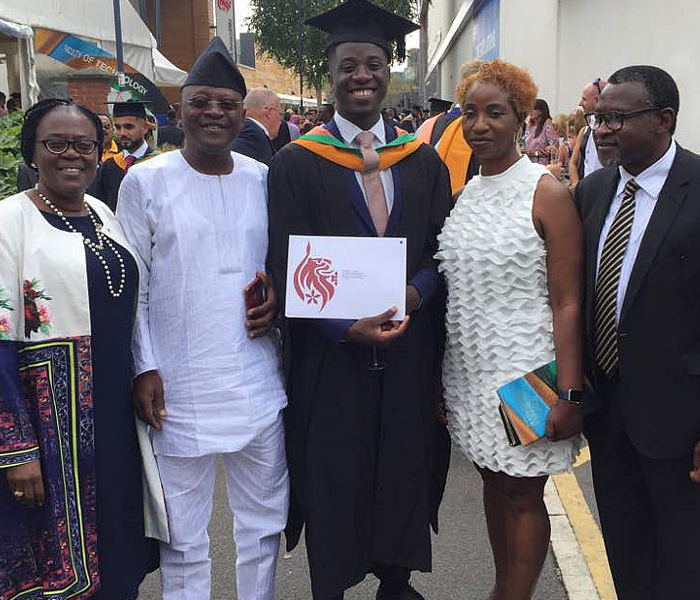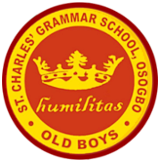
The Assembly & Roll Call
St. Charles’ Grammar School Osogbo was established in 1960 by the Catholic Community of Oyo Diocese under the leadership of His Grace, The Rt. Rev. Owen McCoy (then Catholic Bishop of Oyo Diocese). The Osogbo community was also enthused by this development and volunteered any quantity of land the school desired immediately beginning from the broken walls of the ancient city of Osogbo (a place founded by two itinerant hunters, Laro and Timehin). The school was staffed initially by expatriates and these included; Mr R I McFarlane (principal 1960-64), Mrs McFarlane, Rev.Fr. F.B Gaffney (a world War II veteran popularly called “mon pere m’offre ces cadeaux”), Rev. Fr. G Snape, Mr. Ashcroft, Mr. J C Matthews (youngest graduate science tutor from Aberdeen), Mr. J O Brien, Late Rev. Bro N. Nicodemus. The school was later to have its first African tutor at the advent of Mr. O A Obateru. The entire ambience had been Catholic and European. The school, founded with such energy and vision rode many innovative first waves within the first few years of its inception. It has maintained such prance and bounce since its emergence in academics, sports, music and other extra-curricular activities. In 1962, this school initially named after a European Catholic Saints (St. Charles Borromeo) was presented with a medal from Pope Paul VI (then Cardinal Montini) during his visit to Africa.
Life was good and there are loads of funs in the school. Sports, manual labour and the evening preparatory sessions (prep) were as religiously observed as the regular teaching sessions. Every student was encouraged to acquire some nodding acquaintance of any aspect of sports. Free football boots, boxing gloves, and other donated sports equipment ensured that nobody’ muscles would be allowed to attenuate. A particular principal (Dr. J R Hargraves) improved on this tradition by frequent invitation of outside coaches to come and train students during training sessions.
Dr. Hargraves spoke nine languages and was a celebrity anywhere he went. To his credit was the emergence of different cadres of football teams: Mosquitoes, Wasp, Beetle & Rabbit teams. A student must pass through all the teams to be selective for the second and first XI. Thus the school ruled the roost in all sporting activities in Osun Division. Sport men were on special diet in a school where everyone was rather overfed! Scouting was another prominent extra-curricular activity; the school troops having been established by the first principal Mr. R I McFarlane (1960-64) who was a keen enthusiast. Weekly activities at the Scout camp (includes cooking, mapping, drills, hikes etc.) ensured that many outstanding Scouts were produced. Notable students like Daniel Egbulu (65 set) was sponsored to Greece, Albert Achudume (1966 set) was sponsored to the USA while the duo of Anthony Adama (Atakoumi) and Luke Adekoya (both 68 set) were sponsored to the 50th Anniversary of Scouting in Nigeria, held in Surulere, Lagos in 1964. Every aspect of school life bubbled with considerable enthusiasm; the school was Utopia of some sort. 1965 school year was a turning point in the history of the school, it was the year St Charles had her first African principal, the person of Mr. J A Adesina. It witnessed the beginning of a revolution – strings of discipline were pulled so taut that it changed the entire demeanour of the staff and students alike. Class Disciplinary Committees (CDC) cuts in dietary Milk and Butter, weekly tests introduced with greater emphasis (marks awarded) on manual labour, regulated dressings and free use of the cane were the essential aspects of the new disciplinary package introduced by Mr. J A Adesina. Defaulters (staff and students) either had to shape in or ship out! Many parents became apprehensive and for the sake of their wards, subtly organised indirect and direct pressurizing moves – which only made the principal to proceed with very determined glee! Many parents abandoned their gauntlets when the level of academic achievements soared at the advent of this new lobby-proof principal, besides, he had cancelled all rented hostels when he arrived, to keep all boarders within the school premises, the best disciplinary control.
Life was no longer fun to the students. The glamour of their admission year vanished with the forceful adaptation to the new disciplinary measures. The tedium of study was no less rigorous as Mr. Adesina held the weekly tests with renewed enthusiasm alongside the strict disciplinary options. The general atmosphere compelled every student to either become a paragon of decorum or get suspended but worst case scenario, get expelled. The principal never spared the rod; he once thrashed the entire school. Those who fail badly in any class were demoted to the immediate lower class - it was promotion or demotion! This moulded many students, especially the 1964 set, into formidable academic group such that by 1967, many that attempted the London GCE (O’Level) privately, passed generally, with two or three subjects.
1966 academic year was turgid, it witnessed student’s reaction (310 students) to the new spate of disciplinary regime. The school team had qualified for the first time for the semi-finals of the All-Secondary Schools Governor’s Cup and St. Charles was slated to meet St. Anthony’s Grammar School, Esure, Ijebu-Mushin at Liberty Stadium in Ibadan. However, the principal refused to grant the school permission to play the match, on disciplinary grounds. There had been some instances of the swapping of harsh words between footballers (1st team) and Rev. G Snape at the quarter-final match – what in today’s world goes for “dressing room banters”. The principal won’t have it. He reminded students of the need for a consistent disciplined demeanour. The situation became tense, more so, when the principal had just removed milk (then supplied by USAID) from the menu table and also banned margarine when the Food Prefect (then Samuel Aboyeji) forgot to purchase them. The principal was about to suspend the Food Prefect but forgave him on the plea of the entire students at the assembly – he had asked them to choose between Aboyeji and their margarine. The students stood firmly behind Aboyeji, hence margarine became a banned item. Tea was henceforth taken without milk and bread eaten without butter. In a year, when the patron saint’s name was changed to St. Charles Lwanga (one of the recently canonised African Saints, having been a martyr of the anti- Christian massacres at Namugongo, Uganda, about 1700 AD), one would have expected the best of conduct from the students. However, on the eve of the semi-final league match slated for Liberty Stadium Ibadan, a school-weary student population broke into unprecedented riot! It took the police to bring to normalcy and all Form 1 to 4 students were suspended indefinitely. Expulsions were to become part of the retributive disciplinary options adopted later. The 1967 school year became one of calm after the inglorious riot. The level of academic excellence soared further. Students took to their class work much more seriously especially under the renewed disciplinary alternatives available. highest percentage success in the School Certificates (WAEC) results. Forty of the fifty two class members were promoted to Form 5 in 1968. The principal, certain that he had successfully nursed a class of achievers, conceded some requests: late night reading, use of trousers, exemptions from classes and assemblies, building of a new lawn-tennis court, etc. He however could not spare the rod even for the final year (1968) students.
In his valedictory address to the 1968 set, he had concluded that all the set members would not like him, as they were just about to go into the world. He was, however, confident that they would like him later once they realise the formative values of his disciplinary options. The end, they say, justifies the cause. The journey of 5 years at St. Charles was not a waste.
Nicknames were popular in the school in our time. Many of those names (a.k.a) were aware of this. Some boys, infact, chose their own pseudo names. This practice was popular among the boxers and footballers. Some other students were awarded certain names as “memento” of certain happenings in the school or book character. Many of our teachers did not escape being given names that portrayed their teaching mannerisms or gesticulations. Few touchy boys reacted negatively to the names they were given simply because those names fitted in to their life styles so squarely. Here are some of the names. We hope to populate this with time, not to demean anyone, as others also took up these appellations, but for the fact that these names are not the true reflections of the wonderful individuals that “own” them during the days at Ogba Aguda.Those that came to memory are list on right on this page.
Professional Etiquette
Polite
it was alway the culture or ethos at st.charles that an elder or a student higher in class should be accorded superiority in all dealings within campus. Implementing this principle in full illustrate how discipline was maintained irrespective of staff members being present or not. It might look harsh now but it sure maintain peace and hamony of sorts and created rules we now call etiquttes.
Courteous
it was alway the culture or ethos at st.charles that an elder or a student higher in class should be accorded superiority in all dealings within campus. Implementing this principle in full illustrate how discipline was maintained irrespective of staff members being present or not. It might look harsh now but it sure maintain peace and hamony of sorts and created rules we now call etiquttes.
Responsible
it was alway the culture or ethos at st.charles that an elder or a student higher in class should be accorded superiority in all dealings within campus. Implementing this principle in full illustrate how discipline was maintained irrespective of staff members being present or not. It might look harsh now but it sure maintain peace and hamony of sorts and created rules we now call etiquttes.
The Central Executive Committee
The Central Executive Committee is the central governing body of the Old Boys Association, globally. They regulate and make recommendations for all the arms of the Old Boys.
Branch
A branch would be formed by the Old Boys who are domiciled in a particular Country, i.e SCOBA UK Branch, SCOBA Australia Branch, SCOBA South Africa Branch, SCOBA US Branch, etc
Chapters
A Chapter would be formed by the Old Boys who live in same geographical location, city or town, i.e SCOBA London Chapter, Lagos Chapter, Atlanta Chapter, Kaduna Chapter, Manchester Chapter, Osogbo Chapter, etc.
Stanzas
Stanzas would be formed by Old Boys of a particular graduation year set, especially, those that were in the same study years, (ie Form1, Form2,,...Form5) which elsewhere is easily termed "mates" but not necessarily age wise
